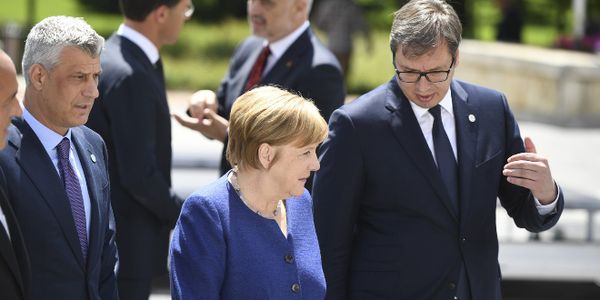Garcevic Publishes Op-Ed on Kosovo-Serbia Partition
Ambassador Vesko Garcevic, Professor of the Practice of International Relations at the Frederick S. Pardee School of Global Studies at Boston University, published an Op-Ed examining how an exchange of territory between Kosovo and Serbia could cause instability across the Balkans.
Garcevic’s Op-Ed, entitled “Kosovo-Serbia Partition Could Spark New Balkan Conflicts,” was published in Balkan Insight on August 15, 2018.
From the text of the article:
An exchange of territory between Kosovo and Serbia could provoke a chain reaction and cause instability across the Balkans, and the West needs to wake up to the potentially disastrous consequences.
The change in the political environment in Europe and spotty relations between Europe and the US have made politicians from the Balkans believe that it’s now time to make their plans a reality.
Caught between structural challenges such as Brexit or the new MiFID financial regulations and security challenges such as the Ukraine-Russia situation, the migrant crisis, the Middle East or the Sahel region of Africa, where France has suggested creating a joint European military force, the EU is struggling to maintain its unity.
Moreover, the rise of nationalism and the popularity of extreme-right movements in Europe and the US have brought back the ‘blood and soil’ ideology. This resonates significantly with the Balkans’ nationalism.
US-EU relations are depressing. Disputes with the current US administration and an ongoing tariff war with the US is the last thing Brussels needs at this moment. This is coupled with Washington’s increasing disengagement in regions of peripheral geopolitical importance for the US, which is inspiring for local leaders and their maximalist ambitions.
Against this backdrop, the Western Balkans come a long way down the EU’s list of priorities. They are out of sight for Washington, too. An ideal situation for those wishing to revise borders and history.
During his diplomatic career, Amb. Vesko Garcevic dealt with issues pertinent to European security and NATO for almost 14 years. In 2004, he was posted in Vienna to serve as Ambassador to Organization for Security and Cooperation in Europe. He had been a Montenegro’s Ambassador to NATO from 2010 until 2014 and served as a Montenegro’s National Coordinator for NATO from 2015 until he joined the faculty at the Pardee School.
